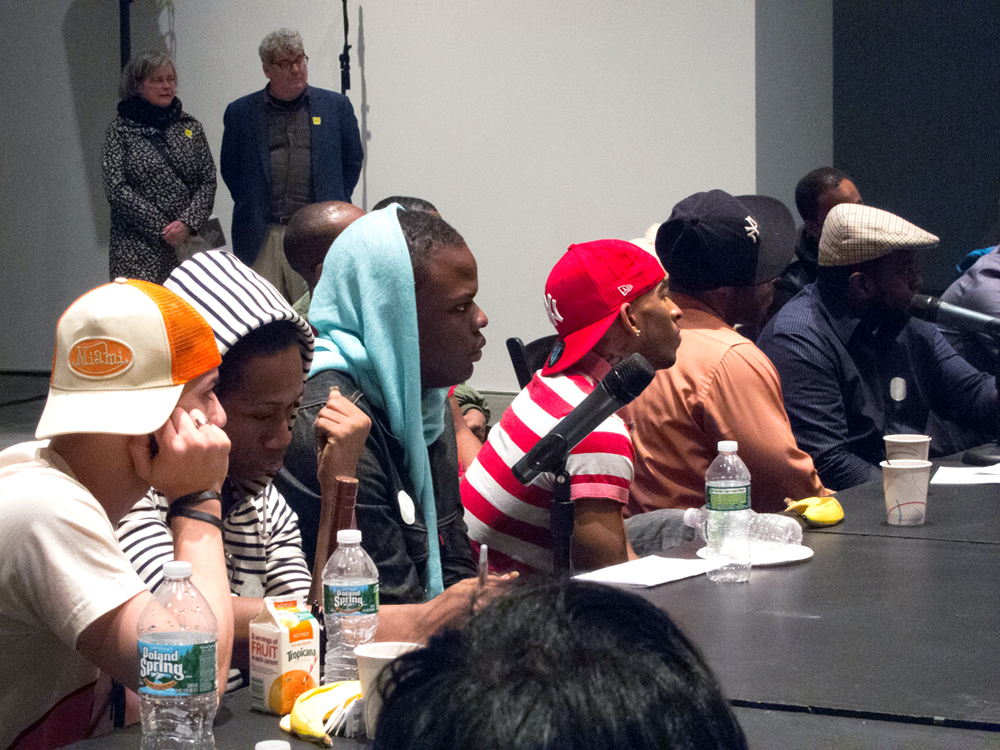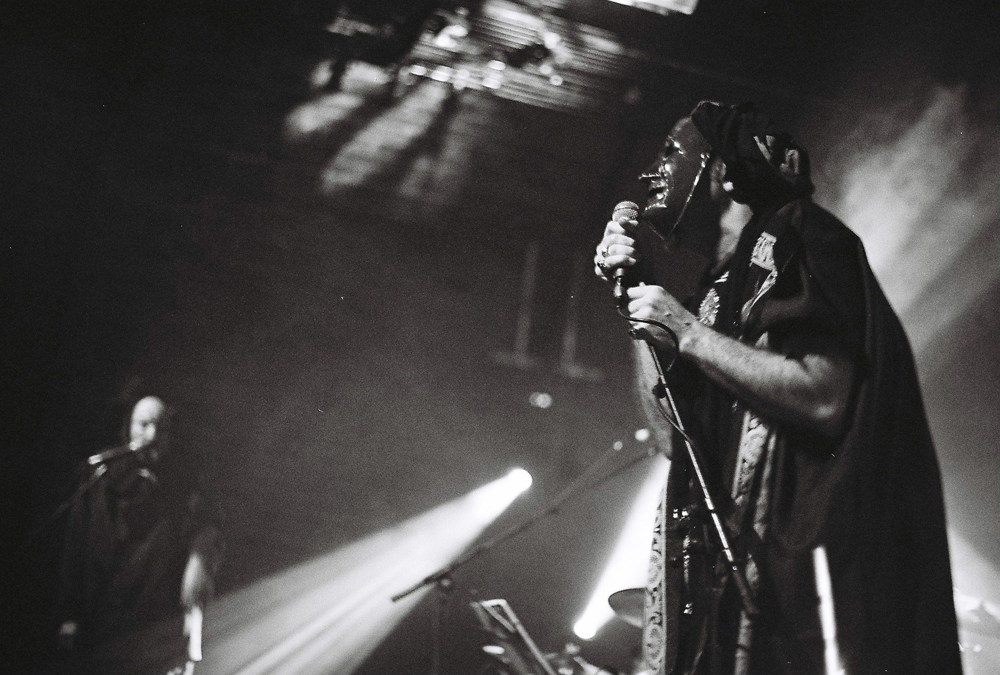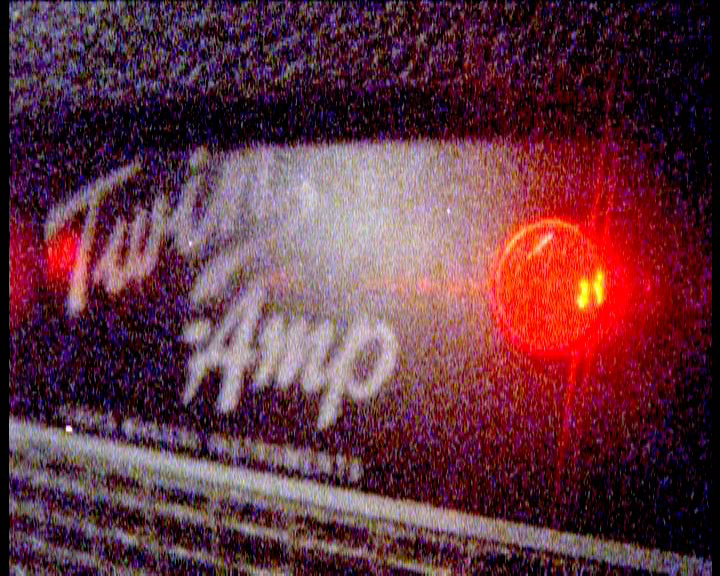
Queer Liberation: No Prisons, No Borders
Dean Spade Hope Dector Tourmaline
A crash-course in pre-figurative, radical, queer, anti-racist, anti-police, anti-prison, anti-deportation abolitionist politics and trans-resistance.
Arika have been creating events since 2001. The Archive is space to share the documentation of our work, over 600 events from the past 20 years. Browse the archive by event, artists and collections, explore using theme pairs, or use the index for a comprehensive overview.

A crash-course in pre-figurative, radical, queer, anti-racist, anti-police, anti-prison, anti-deportation abolitionist politics and trans-resistance.

(Cyber)feminist, non-essentialist transgender and queer daily radio shows using the formula of morning radio as an arch way of thinking about the scripted behaviour and controlled empathy of systematic care.

For day two of Ultra-red’s project, the investigation will take up protocols for listening to the sound of freedom composed and facilitated by the Vogue’ology collective.

A conversation and livestream considering a global feminist critique of capital with Silvia Federici, Hortense Spillers and Gayatri C. Spivak.

This set continues on from the Bud Neill inspired clatter using the contents of the Usurper twin’s pockets.

Three intense solo performances for drums (both played and screamed through), cymbal, voice, credit card, bird whistle, and guitar amplifier/leads.

Perhaps the paradigm of America’s covert musical subculture, Sun City Girls operate just over the border of raucous delirium.

Instead of the one-way monologue of normal performance, what would be the result of an actual collective dialogue? Where would it go?

A loud, buzzing stew of electrical light as noise and convulsive electric guitar squall.

Freeform Super 8mm documentation of Saturday at Instal 06 by filmmaker Matt Hulse.

A conversation about the movement for prison abolition and refusing the logic of race and sex that underpins the criminalisation and mass incarceration of communities.

Four perspectives from people involved in different anti-capitalist and anti-racist struggles, considering how ideas of ‘ending’ have shaped their political thinking and praxis.